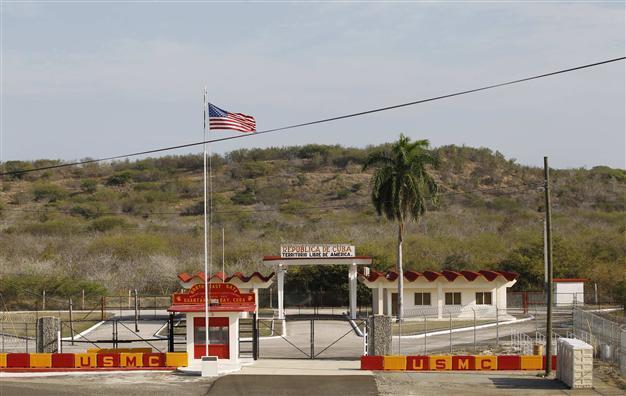White House monitoring Guantanamo hunger strike
WASHINGTON - Agence France-Presse

International Committee of the Red Cross is sending a delegation this week to check conditions at the Guantanamo Bay prison facility. REUTERS photo
The White House said March 27 it was closely monitoring a growing hunger strike among inmates at Guantanamo Bay and reiterated President Barack Obama's vow to close the prison facility.
Officials also noted that the International Committee of the Red Cross was this week sending a delegation to check conditions at the US military installation in Cuba, a visit brought forward by the hunger strike.
Thirty-one detainees - five more than on March 22, have been refusing food to protest their indefinite detention, a move defense lawyers blame on mounting despair inside the prison.
"I can tell you that the White House and the president's team is closely monitoring the hunger strikers at Guantanamo Bay," said Josh Earnest, a White House spokesman.
"The administration remains committed to closing the detention facility." A Guantanamo Bay spokesman, US Navy Reserve Captain Robert Durand, said that 31 prisoners, out of a total population of 166 were on hunger strike as of Tuesday. Eleven detainees were getting nutrition through feeding tubes, three of whom were in a prison hospital facility for rehydration and observation.
David Remes, an attorney for 15 Guantanamo detainees, told AFP last week that the hunger strike was unprecedented in its scope, duration and determination.
The protest was launched at Camp 6 in Guantanamo on February 6, when a "routine" inmate search took place. Detainees said guards had inspected their Korans, which they perceived as "religious desecration." But the US military said the Korans were in no way desecrated. Military officials said only Muslim translators at the camp handle copies of Islam's holy book.
Camp 6, built on the hills around Guantanamo, houses inmates who pose no particular threat and have no special value in the eyes of US authorities.
Earnest referred to reports that a Red Cross team was heading to Guantanamo as part of a routine agreement to inspect conditions at the prison.
"We give them full access so that they can take a look at what's happening at the prison there," he said.
Obama promised to close the camp in one of the first acts of his presidency in 2009, but his efforts have been frustrated by Congress and other opposition both at home and abroad over plans to resettle the detainees.
Lawmakers have banned Obama from bringing detainees to the US mainland, hampering a move that would have allowed him to close the camp.
Lawmakers have also hurt Obama's efforts to transfer inmates deemed ready for release to third countries and thorny legal issues surrounding trials for the most dangerous prisoners have also hamstrung the president's efforts.
But Zeke Johnson, Director of Amnesty International USA's Security with Human Rights Campaign, said that Obama's repeated vows to close the camp were insufficient.
"Talk is cheap. It's time for President Obama to take real action to fulfill his Guantanamo promise," Johnson said.
"He should work with Congress to ensure that the restrictions on Guantanamo transfers are not renewed this year."
